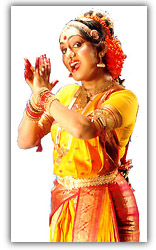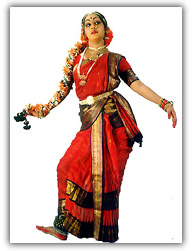|
|
|
|
Mana Sanskriti (Our Culture)To subscribe to this free monthly electronic journal
write to: OneWorld_OneFamily-subscribe@yahoogroups.com
Chief Editor: Sreenivasarao Vepachedu, PhD, LLM |
|
|
||
|
Venkataramamurthy Gidugu (1862-1940)
Venkataramamurthy Gidugu was one of the very few people with great vision who saw the importance of the speech of the common people and devoted their lives to bring radical changes in language use. He was the leader of a movement for spoken language - vyavaharika bhasha. Every language has several distinct forms such as written language, spoken language, archaic language, dead language etc. The poetic Telugu language is kavya bhasha. The written language in prose is called grandhika bhasha. The spoken language is vyavaharika. It is considered that until after Srinadha's time there was no difference between poetic and spoken languages. However, later the spoken language changed and a gulf between the spoken and poetic languages emerged. Until Chinnayasuri there was no difference between spoken and written language. However, Chinnayasuri changed this and used poetic language in his prose, which was popularized as written language in schools. The development of people depends on their language skills. When language literacy is limited to the educated, the rest of the society is denied the opportunity for development. Gidugu came out victorious in the battle against the proponents of grandhika who wrongly equated vyavaharika with gramya (related to village), meaning "uneducated," and/or "vulgar". The unfortunate situation in Telugu nation today is that even the educated - the cream of the society - has difficulty in mastering two languages- Telugu and English. They are speaking Tenglish today due to their inability to speak fluently in any single language. Also, to make matters worse, nobody is ever ashamed of his/her inability to speak without jumping into English for s/he has no vocabulary in Telugu to express clearly. On the contrary, it is really shameful to speak Telugu without English words and sentences, because such Telugu is considered gramya or vulgar. Thus, vyavaharika is fast becoming mostly Tenglish. Telugus desperately need another Gidugu, who was popularly known as pidugu (thunderbolt), to reform the educated Tenglish speakers - the so-called cream of the Telugu society - who have no respect for basic Telugu words such as mother and father and lost their ability to retain such basic vocabulary in their language- Tenglish. Telugu will become extinct and replaced by Tenglish even in villages - where the so-called uneducated live now - as the literacy (which, unfortunately in Andhra Pradesh, means knowing and using English and Hindi) increases to 100%. Ramamurthy Gidugu also tirelessly worked for the development of tribal languages like Savara. Savara is a Munda tribe living in the borders of Andhra and Orissa. Savara tribal people did not even have a script for their language. He gave Savara language a script and prepared lexicons. During his research for Savara language he had to travel in the forests resulting in excessive use of quinine and became deaf. He lost all his property in Parlakimidi in the fight to include Parlakimidi in Andhra during the reorganization of states. For more on Gidudu please visit: http://www.languageinindia.com/dec2002/visionaries.html Source: naa vaangmaya mitrulu, Kameswararao Tekumalla and http://www.languageinindia.com/dec2002/visionaries.html |
||
|
|
||
|
Om! Asatoma Sadgamaya,
Tamasoma Jyotirgamaya, Mrityorma Amritamgamaya, Om Shantih,
Shantih, Shantih!
|


